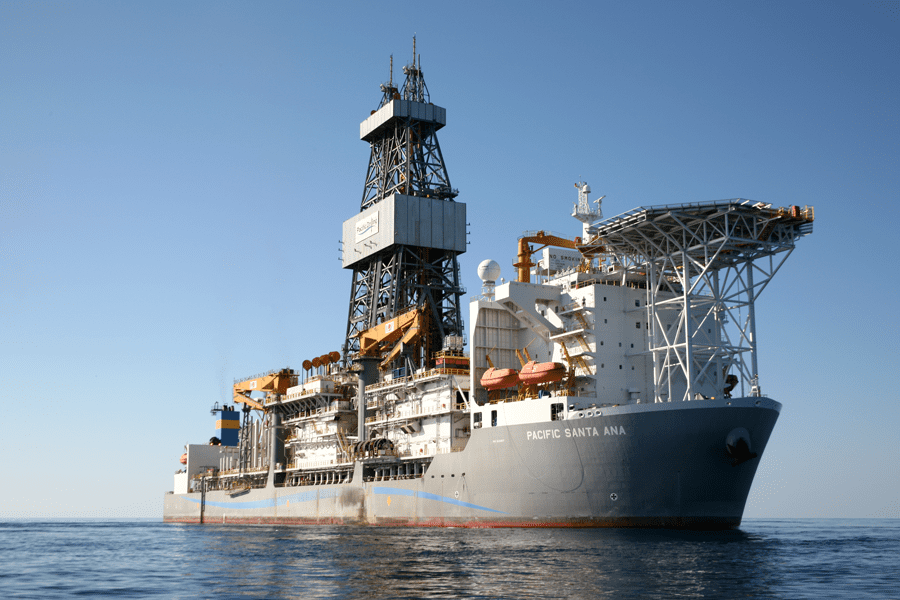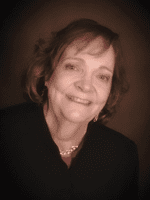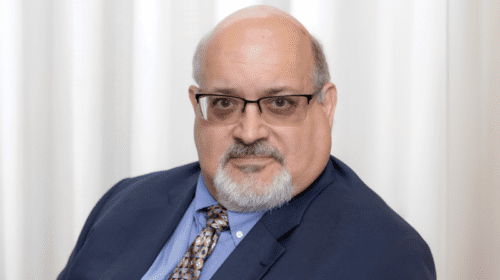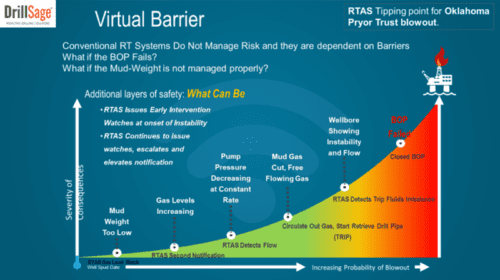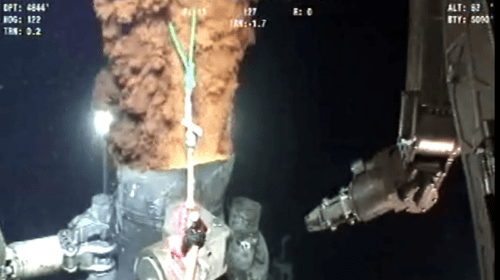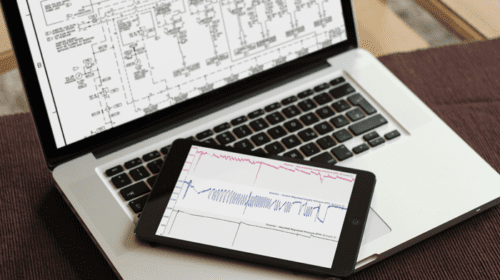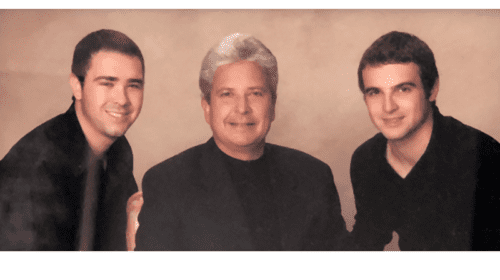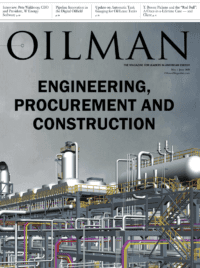Stories from members of the offshore oil and gas tribe as they work to keep the sails trimmed and the ship afloat during the turbulent seas of COVID-19
High reliability organizations (HRO) have five principles embedded in their DNA:
- Preoccupation with failure
- Reluctance to simplify
- Sensitivity to operations
- Commitment to resiliency
- Deference to expertise
In the early 21st century, a number of offshore upstream and downstream energy companies hired executives to help build HRO principles into their organizations with the hope of improving communications between the company and all the contractors and subcontractors. The challenge is HRO is not a product that can be purchased.
In 2008 Chris Beckett had a dream when he built Pacific Drilling, an advanced deepwater dual gradient drilling company with all the latest technology. Beckett designed his drilling rigs using HRO principles as well as the team from the C-suite and the rig management organization with a different structure. Rather than having an offshore installation manager (OIM) be the Captain while moving, and a tool pusher to oversee the drilling, he elected to create a three-person team comprised of three disciplines – the vessel management team. The VMT was designed with three ideas: to raise the consideration of all aspects of rig ops to the same level (drilling, marine, technical and safety), foster a culture of collaboration, and break the historic industry culture of battling “who’s in charge” during a major disaster.
The three-person rig management team would make decisions together on the rig. The OIM would be the licensed captain. The drilling supervisor would lead the drilling. The technical engineer would supervise all the equipment and technology. The three-person VMT would work closely with the operator’s drilling engineer to make critical, sometimes split second, multi-million-dollar decisions with backing from the C-suite in Houston. This unique approach to rig management allows for those closest to the operation to operate quickly in real time – deferring to expertise on the sharp end of the spear (HRO Principle #5).
The upfront cost of having three senior leaders proved to be a hard sell to most drilling industry leaders when Beckett began marketing the idea in 2008. But then the night of April 20, 2010, unfolded on the Deepwater Horizon. Chevron contracted the first rig, the Santa Ana, ten days after the blow out. Beckett says, “You might say we were born during a crisis. We redesigned the first operating crew structure to be led by the VMT in large part because of Macondo, and started operations later in 2010.”
Although Becket left the CEO role in August of 2017, the HRO DNA he built into the first rig design and the organization would be exhibited while tested in the crucible of the extreme COVID-19 global crisis in the spring of 2020.
On March 1st, CERA, along with Mayor Sylvester Turner of Houston, announced for the first time in 35 years that the Houston energy event would be put off until 2021 until the medical world had a handle on the global COVID-19 Pandemic. No one could have guessed that OTC would also be postponed until 2021 even though Houston did not yet have a single case recorded at that time.
On March 4th, IADC/SPE held a live broadcast from the International Drilling Conference in Galveston, Texas, titled 2030 Hindsight (with 2020 Clarity). Moderated by Janeen Judah, 2017 SPE President, and retired Chevron executive, Judah noted, “The future is easy because it hasn’t happened yet. The future is ours to shape, but do we really know what we want it to be? With technology driving social change at an astonishing rate, industry leaders face both a vast, looming opportunity and a singular daunting task: How do we prepare our teams for the future we envision? How do we project the path forward into this future, considering our hopes and dreams for better lifestyles while holding fast to the operational hunger for unmatched performance and growth? The visionary leaders and progressive thinkers on this panel know the score.”
The next day, March 5th, the 178th (extraordinary) meeting of the Conference of the Organization of the Petroleum Exporting Countries (OPEC) was held in Vienna, Austria. CBBC reported: International benchmark Brent crude traded at $45.46 a barrel Friday afternoon, down over eight percent, while U.S. West Texas Intermediate (WTI) sank to $41.93, also around eight percent lower.
Storm clouds were gathering across the globe, but the OPEC Plus meeting did not seem to arouse any sense of urgency on price volatility that began in December 2019 when New York equity investors threatened to pull their money out of U.S. shale.
On March 7th, SPE International held the annual university paper contest at LSU for the eastern North American engineering students. Those who traveled to the Baton Rouge campus to participate as judges or presenters could not have known it would be the last public (in person) event hosted by SPE in the spring of 2020.
Within days, life as we had known it would change swiftly and profoundly as the frantic search began for basic food and household items, including beans and pasta, toilet paper, hand sanitizer, and cleaning products. A trip to grocery stores and pharmacies provided the first glimpse that the Western nations in Europe and North America had a supply chain geared toward “just in time” ordering. Major national disasters of the 21st century, like the sunny Tuesday morning on September 11th, 2001, demonstrated that the FAA could ground all commercial and private airlines within 60 minutes. But this was not a 9/11 terrorist attack nor was it a natural disaster like a hurricane, flood, wildfire or tornado.
A few days later, I heard a knock at my door. It was a young engineer I have been mentoring since he graduated with a degree in petroleum engineering more than a half a decade ago.
“Miss Lillian, I do not want to come into your office. Just making crew change. We have at least two cases of COVID-19 on our installation.” He suggested he buy us a takeout lunch and proposed that we eat from our separate vehicles in my backyard. He was concerned about being an asymptomatic carrier and exposing me, but he was more concerned he might be taking COVID-19 back home to his family in Texas. He only stayed 15 minutes before heading home.
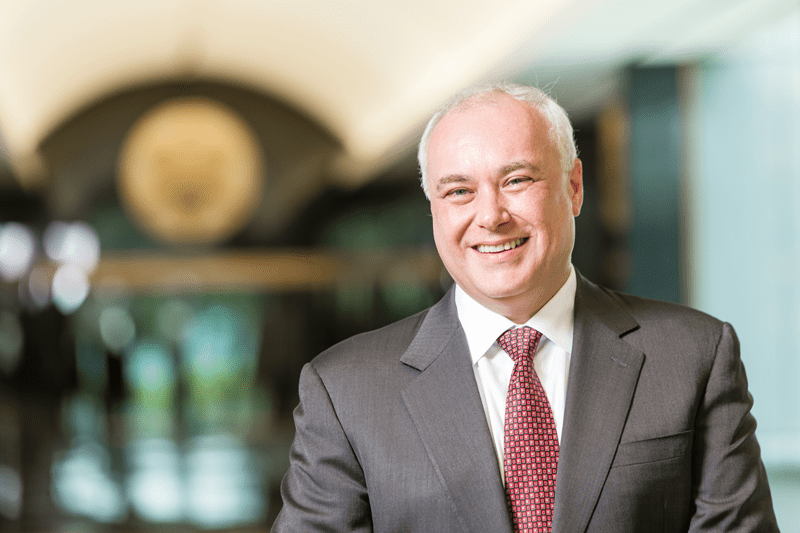
A couple of days later, I got another knock on my door from a 30-year old mud engineer making crew change. “Miss Lillian, I am having trouble focusing on the job. I am worried about my fiancée and my mom. She’s in long-term care. No one can visit her.”
Other things were on his mind, too, and he needed to offload. “I know I may get laid off with the plunge in oil prices, but I could live with that. There is no shame in being let go in a downturn. That would not ruin my CV or future job opportunities. This is going to sound ridiculous. I could not sleep for the first time during this last hitch offshore. I kept waking up with crazy dreams. I kept thinking if I miss something significant, I will be like the service hands on Deepwater Horizon. If me or my crew or anyone else on this drilling job screws up, we could end up killing someone. I am more worried about losing focus and making a mistake. All of us are losing situational awareness because every hour the breaking news keeps changing. I can’t figure out if I should go back for another hitch or maybe just take a job working at a pharmacy or restocking grocery stores. I feel like I am failing my family at home and failing at my job. I could be helping out on the front lines and not having nightmares about screwing up offshore.”
A few days later, another young professional came by. She had a different fear: getting stuck offshore for 50 to 60 days and being infected by COVID-19 before she had the opportunity to have a child.
By April 1st, the battle to fight the silent killer, COVID-19, was in full flow in the Gulf of Mexico, the North Sea, and offshore Australia. Cases from offshore oil and gas installations were being reported from all over the world.
Then I received a phone call from my friend, Tom Macrae, a drilling supervisor working for Petronas on the Pacific Drilling Rig, the Pacific Santa Ana. Macrae had been contracted by Petronas to supervise a 14-well plug and abandonment (P&A) campaign in Mauritania, West Africa. Macrae explained they had completed three of the 14 wells at the time of suspension, still nine months to one year’s work ahead to complete the campaign.
Tom Macrae, Senior Drilling Supervisor, Petronas
The rig was heading to Las Palmas where it would wait to return to its drilling program. Macrae began sharing with me his pride in how the VMT and Pacific Drilling Corporate office in Houston had used the five principles of HRO to handle the unexpected COVID-19 storm. The coronavirus had swept across the globe leaving in its wake an astonishing death toll. By April, 200 nations had responded to the silent killer. Countries turned away cruise ships leaving passengers stranded at sea without a port that would allow them to disembark. With global news spreading stories 24/7, each country had to make its own rules. Suddenly a virus that attacks the lungs began impacting the psychological health of the drilling operations long before Macrae and VMT realized what was really going on for the crew of 180 men from more than a dozen countries.
When Macrae began his hitch six weeks before it seemed like a simple P&A job. He had heard from a former colleague on another rig that their crew had taken an influx without noticing and had a well control event going on.
Macrae said, “At first I was puzzled when this very experienced crew took the influx. I could not figure out how they missed it. After that, we had a couple of near misses followed by some minor equipment damage. I began investigating to see if complacency had set in. Then the medic noticed an increase in [patients] coming in each day. People had sniffles or sore throats. These are tiny little deviances from normal operations but enough to raise alarms.”
By February, as news of the global COVID-19 pandemic spread, the medic met with Macrae and the VMT. The Hearts and Minds Coach began to listen to concerns from the roustabouts and maintenance people. Macrae said, “We began focusing on crew concerns at the daily pre-tour meetings and, by March, when different nations went into lockdown, our crews from Jakarta, Europe, Malaysia, the U.S., and various African countries began expressing fears about getting COVID-19 like those on cruise ships. We finally made the decision not to allow anyone else on board until the COVID-19 pandemic had ended.”
Amy Roddy, senior vice president of corporate services for Pacific Drilling, says in offshore drilling the unexpected from the well or weather or illness means major international drilling companies are set up to respond immediately to new and totally unexpected events. This is especially true for deepwater drilling with high pressure and high temperature wells and in the last decade with increasing unexpected sudden storms.
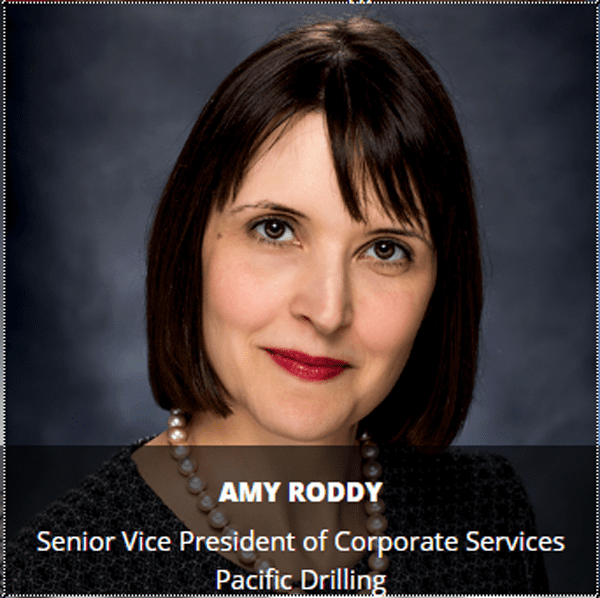
“In January COVID-19 was on the radar, but we could not have predicted how quickly it would cross the globe and how suddenly it would impact different nations. At Pacific Drilling we began monitoring temperatures and implemented pre-boarding screening processes across our fleet in Mauritania, Oman, and Gulf of Mexico. Even in February we knew we were dealing with medical crisis, but we did not expect borders to close and planes to stop flying,” Roddy says.
Macrae explained when you have 180 personnel on board (POB) and decide there will be no more crew changes, you have to figure out how to balance the drilling operation and work schedule with the mental health of a crew distracted by global breaking news.
“As the days went on and the uncertainty grew, the mental well-being of the crews was at the forefront and it was obvious that mental fatigue was starting to influence the daily work pattern. The Vessel Management Team and I, with input and backing of shore-based management, devised a work schedule that would give the crews six hours additional off-time every few days – enough to recharge their batteries and talk to their families; however, not enough time to worry excessively. One-on-one counseling was available to anyone who wanted to talk, and this went down very well, especially when it was done by our Hearts and Minds Coach, Troy, who had built a special rapport with all the crews. The new work schedule left enough structure and normality in the daily routine that people could fully focus on their work. The six hours to deal with the crisis, the family, and help boost morale of everyone on board seemed to be the perfect recipe. The crew focused on the operation and were less likely to have an incident. They began sleeping better during the 12-hours off. The catering department did its bit in keeping morale high by adding a few comfort foods to the menu when possible.”
Macrae added, “During the 12-hour sleep period crew members reported the new normal schedule was allowing them to sleep once again without nightmares. We had to keep working just to have structure in the workdays and a sense of normalcy. But, by making these daily adjustments to the changing circumstances, the crew began to realize they were living through a chapter of history that will be remembered 100 years from now.” Macrae said he is so proud to have been working for Petronas in the spring of 2020 on the Pacific Santa Ana.
Finally, by the first week in April, the operation had been suspended and the rig and crew made it back to the idle location in Las Palmas. Macrae said, “Logistics were a nightmare and organizing travel to down man the crews was especially challenging. Most guys were able to get organized and get home; however, a few remain even now as some countries are almost impossible to get to. Those who are stuck are being well looked after by Pacific Drilling and being kept up-to-date with developments while waiting for the first opportunity to get back to their families. There was a real sense of pride in the company and in particular the guys on the rig having bonded forever in the midst of how they handled a global pandemic. “
Roddy says, in looking back over the last four months, every day has brought new and unexpected challenges, but she credits Pacific Drilling founder, Chris Beckett, with building a small deepwater fleet with blue chip clients, and intentionally instilling the five principles of high reliability organizations in the company DNA, so that all employees, including contractors and subcontractors, know they are truly a member of the Pacific Drilling family. She also says the company uses a media platform, The Drill Down, to communicate important information to employees. But on somedays it includes humor and inspirational information to keep everyone involved with the Pacific Drilling family fully informed and inspired.
Two months ago, Roddy, who oversees HR, IT, communications and facilities for Pacific Drilling, was selected to be honored in 2020 Top 50 Most Powerful Women in Oil & Gas. The ceremony would have been on April 21st. She never dreamed when she was notified that she would spend April 2020 sheltered at home working every day (and sometimes nights) keeping the Pacific Drilling fleet sailing through the turbulent seas of our industry’s COVID-19 spring.
By April 20th, most of the Pacific Santa Ana crew had arrived back in their home countries and attempted to focus on honoring the 10th anniversary of Deepwater Horizon while watching the price of crude fall below zero for the first time in history. The Santa Ana drilling crew members know they will be returning to the well eventually as they were doing a mandatory P&A project. They do not know when “shelter in place” orders in different countries will end or when the airlines will hit tarmacs around the globe.
On April 21st, another young engineer stopped by to visit in my backyard. He and his wife own a home in New Jersey. She is an RN and serving on the front line at major hospital, but having trouble getting N95 masks and HAZMAT gowns.
“Miss Lillian, just answer one question for me! If this country can test every single NBA player, why the hell can’t we test every single offshore oil and gas worker and every single medical worker who comes in direct contact with a COVID-19 patient?”
Answers to these questions will require more space and more time for reflection by the decision makers in every nation. There is a feeling of shock over how quickly the future can become totally unpredictable. There is also a sense of living through one of the most historical chapters in the history of offshore oil and gas and in global history.
Unlike a hurricane, it feels like our ship (both the offshore oil and gas industry and our family lives) has sailed straight into the trajectory of the perfect storm. COVID-19 at first seemed like it might be a repeat of SARS or Ebola or H1N2. Even when China went into a major lockdown in January, western nations thought the silent killer could be contained in Asia. But the sudden closing of all industry in China followed by other Asian nations reduced the global need for oil and gas so quickly that markets were rocked.
Our offshore energy tribe is small and in this season of sea change in the spring of 2020 it is critical for all of us to unite around the globe and keep the faith. The most important step is keeping our ship afloat (the ship of industry, the ship of our various nations, and our family ship). The young professionals who visited me had studied HRO in college. Rather than ignoring their fears and inability to focus, they became pre-occupied with potential failure on their part (HRO Principle #1).
In these days when history is being written by the minute, those who survive the tempest will be charged with setting the direction for the future. The wells that are still being drilled will continue. Those P&A jobs will have to be completed once the global medical crisis has ended. None of us can predict when different countries will elect to resume business as usual.
On March 4th Judah noted, “The future is easy because it hasn’t happened yet. The future is ours to shape, but do we really know what we want it to be?”
Judah is correct. The future is ours to shape, but it will take steady sailing through the oil storm of 2020, and using the principles of high reliability organizations to keep the ship afloat. The companies and individuals who demonstrate the ability to innovate and surf the waves of extreme change will write the future chapters of our energy industry.
Lillian Espinoza-Gala, owner LEG Exploration Education, served on the steering committee for National Academy of Science Offshore Worker Empowerment workshop held in Houston in January 2018 and a section of her Macondo Research is published in Chapter 2 of the proceedings. She currently serves as a Membership Chair on SPE International Human Factors Technical Section Board.

